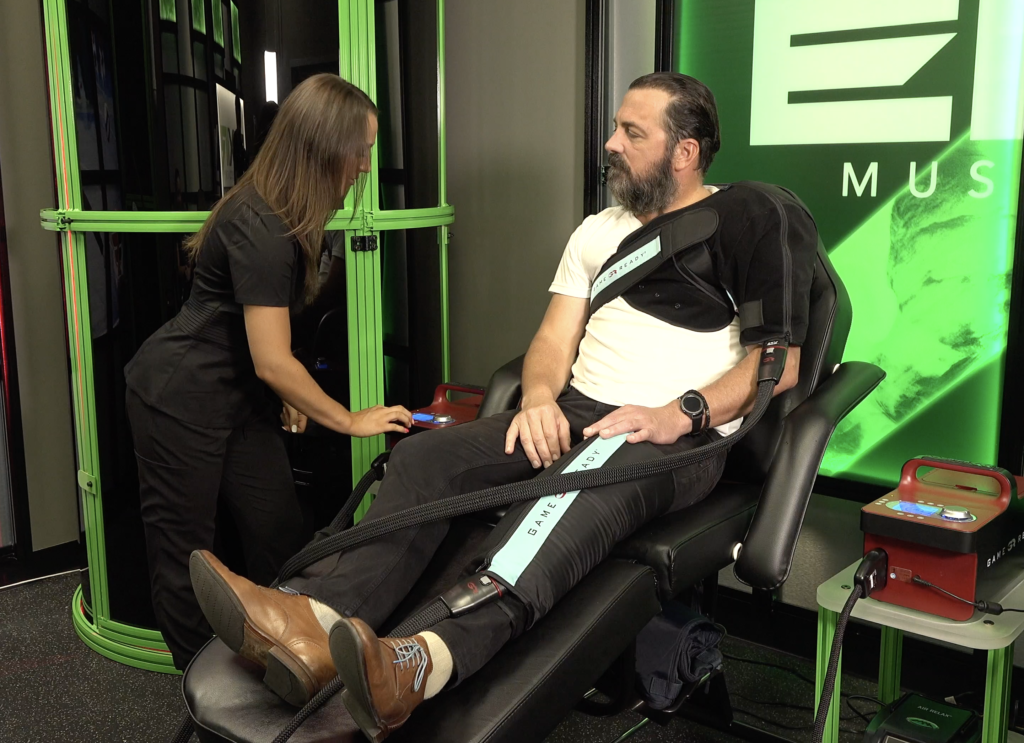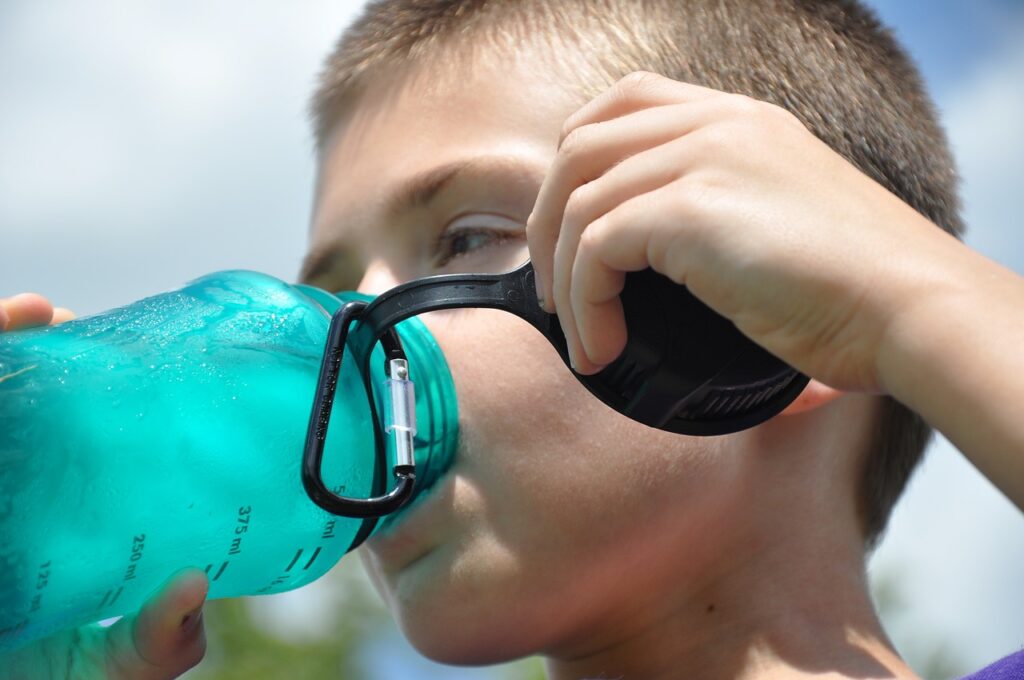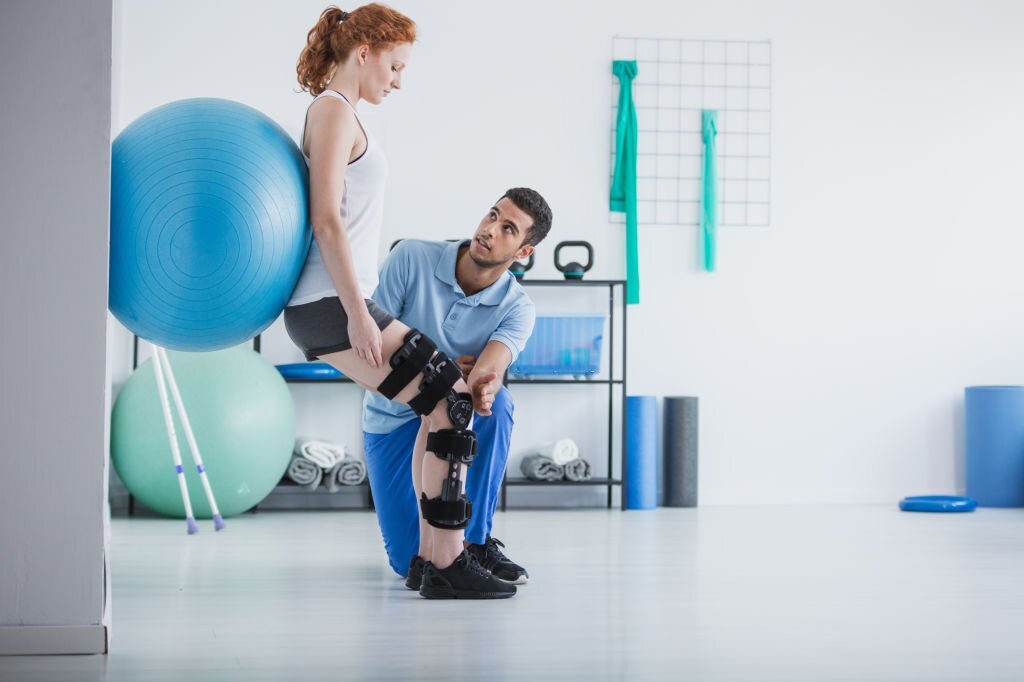After a hard-fought football match, it’s natural to feel drained. It sucks out all the energy, and common occurrences like muscle soreness, bruises, and muscle fatigue often pose a threat to athletes.
That’s when you know the next game won’t be so easy. Unless players tread carefully, they risk longer stints of injuries. Fortunately, you can avoid all that. Just be sure to practice a healthy lifestyle, follow a pattern and do some muscle recovery in the process.
Don’t worry. We will not leave you high and dry. We’ll discuss common causes of muscle injuries and how you can prevent them from affecting your in-game performance.
Types of Injuries Players Will Most Likely Get on a Football Field
Football is a sport of contact where players are more likely to trip, fall, and collide with opponents, putting them at risk for injuries. These can range in severity from minor to the point where you require specialized medical care and surgery.
Let’s Discuss what Some of the Common Injuries Are
The most common injuries are usually minor and can easily be treated. These conditions won’t require you to go under the scalpel. You can treat and prevent them with the right muscle recovery exercises.
- One of the most frequent football injuries is a sprain or strain. These things happen when a muscle or ligament is severely stretched or torn. Applying ice or painkilling cream can be very beneficial to recover from these.
- An ankle sprain is another common injury that can cause pain and swelling, making walking difficult. The swelling takes some time to calm down.
- When a player trips hard on the ground or receives blunt force directly to his muscles, bruises may occur. These happen far more frequently than we realize and can be treated with ice to recover more quickly.
- Stretching or tearing of the muscles in the back of the thigh can result in hamstring injuries. These can range in extent from minor to severe. It takes a good amount of time to recover from it.
- From minor sprains to dislocations and fractures, shoulder injuries can result from falls, tackles, or collisions.
- After a long game, players often suffer from upper or lower back issues. It may occur due to physical stress, muscle strain, or a rough tackle involving another player. Getting the right sort of care will speed up your recovery.
- A concussion may sound frightening, but it often happens from a direct blow to the head. While mild cases can be treated with rest and recovery, severe cases require specialized medical care.
Surgical Injuries
Every so often, an on-field injury tends to get serious. So serious that conventional tips for muscle recovery or a good rest alone won’t cut it anymore. You WILL HAVE to go under the scalpel. These are what we call surgical injuries. Let’s get to know a few.
- A broken bone can frequently become a player’s worst nightmare; the excruciating pain necessitates immediate medical attention. Depending on how severe the injury is, surgery might be required. In addition, the treatment may call for a cast, splint, or brace.
- An ACL tear is an injury to the anterior cruciate ligament, a critical ligament in the knee that connects the thigh bone to the shinbone. It can be a serious injury requiring surgical and therapeutic intervention.
- A complete tendon tear is referred to as a tendon rupture, necessitating medical care, sometimes surgery, depending on the severity, to prevent permanent damage.
Preventing Football Game Muscle Injuries: Tips & Techniques for a Safer Game
Now that we’ve laid all our cards on the table, you know the common and surgical injuries you may face during and after a football game. It’s the perfect Segway for the meaty part of our article. How can you prevent such injuries from harming you and your confidence? Let’s take a look, shall we?
1. Warm Up & Stretching
Players in physical sports (i.e. football and volleyball) often run, do sit-ups, and do routine work on the field to get the blood pumping before the game.

It’s good to warm up and stretch your muscles before the actual game begins. All the stretching and exercise prepare your body for the impending stress. Bottomline, your muscles become more responsive and flexible while playing because blood can flow through them.
Just a few muscle exercises for a few minutes before entering the field can save you from strains and hamstring pulls.
2. Wear Proper Protective Gear
Wearing the right equipment can give your muscles and joints the proper support they need. For example, if you play football while wearing a pair of sandals instead of boots, there is a significant chance that you will hurt your toes, fingernails, and more.
Simply put, investing in proper equipment can save you money on medical bills and lost playing time due to injury.
3. Use Cold & Heat Therapy
Cold and heat therapy is frequently used to treat affected areas of our bodies, particularly when swelling and bruises occur. Applying ice can ease some pain while reducing inflammation and swelling. Heat therapy is used to relax the muscles, improve blood circulation, and lessen stiffness.

After a football game, both forms of therapy are very effective at helping the sore muscles heal quickly. A trip to the sauna or a nice cold shower helps you relieve muscle aches and regain strength.
4. Practice Active Recovery
After an intense game or workout, “active recovery” refers to using your muscles in low-intensity activities and movements to enhance muscle recovery.
Low-intensity movements like Cycling and Light Exercises will increase blood flow and help you get into the rhythm for your next game.
5. Nutrition is Important
You need to eat well & eat properly if you want to be a well-rounded, enthusiastic athlete. You can recover your muscles more quickly if you have a good and balanced diet. It prevents muscle fatigue and replenishes the energy you lost while playing the game.
6. Stay Hydrated

Water is the best medicine for keeping athletes energized. Football players run a lot, sweat, and continuously lose fluid from their bodies. Proper hydration helps maintain blood volume, oxygenate the muscles, and flush out toxins to reduce the risk of injuries.
After the game, you must sufficiently hydrate to speed up healing and restore fluid balance.
7. Proper Rest is Key
For your muscles to recover, you must get enough sleep. Our body produces the hormones that aid in regenerating muscle tissue while we sleep, reducing muscle fatigue.
Sleep deprivation can make you feel weak and dizzy, which can cause inflammation and slow the healing process. To ensure your body is prepared, keep a healthy sleep schedule of 7-8 hours daily!
8. Listen to Your Body
Properly understanding your body will help determine what it needs and why you’re feeling what you’re feeling. It enables you to take the necessary steps to avert any injuries.
Limit testing isn’t a good idea. Don’t push yourself past your comfort zone too often. You can give your muscles recovery time and prevent further harm by respecting their limitations.
9. Don’t Ignore Any Soreness
Soreness frequently serves as a sign or symptom indicating the severity of your injury. A post-game body check is necessary to identify any soreness. Leaving a sore spot untreated means nesting for more. Your muscle recovery will be slowed, which will make you suffer later.
And That’s a Wrap!
Football and volleyball players depend on muscles a lot. Whether they’ll have a long or short career burst depends on how well they maintain themselves.
They’ll have to eat, sleep, exercise, and practice properly to stand any chance of a long, illustrious career. As frightening as it may sound, the muscle recovery routine is rather easy. Players need to be regular at it, that’s all.
We hope our guide and tips on Muscle Recovery will help aspiring athletes and pros alike.



